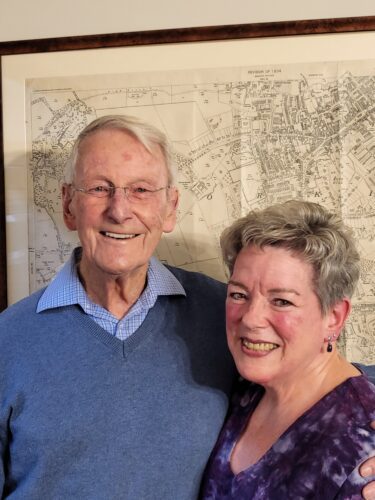In this blog post, one of Dementia Oxfordshire’s Advisers, Melissa Spearman, shares her thoughts on how the dementia care sector communicates with those living with dementia and their carers, as well as the stigmas that often prevent families from talking openly about the diagnosis.
Communication during diagnosis
As Rene Wiedner said in his blog post #6 “We need to help people make sense of their dementia diagnosis; making sure resources and services are available is not enough. We need to combat stigma and help people with dementia and their carers manage their ‘dementia journey’.”
So often, people with a new diagnosis, and their carers, tell me that the word ‘dementia’ or ‘Alzheimer’s’ wasn’t actually mentioned during their diagnosis appointment and it was only when the confirmation letter arrived that the diagnosis was spelled out. As many people with dementia have problems with short-term memory loss it is possible that the words were used and explained but won’t have been remembered. As this is such a common symptom, we need to make doubly sure that the information is given in a way that is sensitive and that the person can remember it and begin to come to terms with it.
The metaphorical 'secret parcel'
In Oxfordshire, patients are currently discharged quite soon after diagnosis, with leaflets and information that are often unread. The diagnosis can be given in a metaphorical secret parcel handed delicately to family members with the burden of responsibility to communicate the diagnosis to the person they are supporting.
The continued existence of stigma means that many, if not most, families do not discuss dementia openly with the person diagnosed. This means that symptoms are not understood, and the normal behaviour people exhibit in response to their symptoms are baffling. In my experience, a lot of people do want to talk about the diagnosis and have a better understanding of symptoms and progression. Talking openly not only helps people feel they have a voice, it means strategies can be put in place to help overcome the impact of symptoms.
Fostering positive peer communication
Our Experts by Experience group of people living with dementia talk openly about their diagnosis with each other and they encourage and inspire each other to live life to the full. They all have different ways of minimising the impact of symptoms.
Image – A lovely photo of Kay and Colin, who both attend our Experts by Experience group, where they share their personal insight into dementia and how the condition affects them.
Colin was diagnosed with Alzheimer’s in 2021 and is supported by his wife, Kay. Colin puts a lot of effort into strengthening his memory, often relearning what he’s forgotten. This could range from remembering how to unlock the front door to recalling the lyrics of his favourite songs, which he sings as part of a barbershop chorus. Other times he’s learning completely new things; his new knowledge of using nasal inhalers and electric razors allows him a rewarding dose of independence. Colin is even drawing on his experience learning French as a schoolboy to help Kay learn a new language.
Looking forward
Until well into the 20th century cancer was hidden away and not spoken about openly, however, the leaps in research and treatments have helped bring conversations and understanding out into the open. With the promise of new dementia drugs and simpler blood test diagnoses on the horizon, the future is starting to look brighter. I hope that this will mean that open, supportive conversations will become the norm and that isolation and hopelessness will be less of a problem.
Melissa Spearman
Dementia Adviser and Education Team Lead
Dementia Oxfordshire


